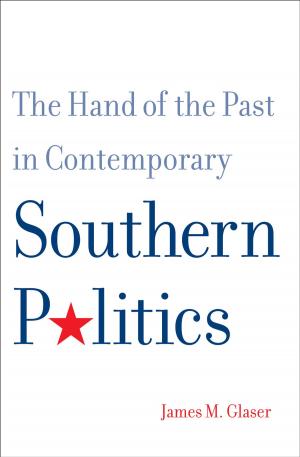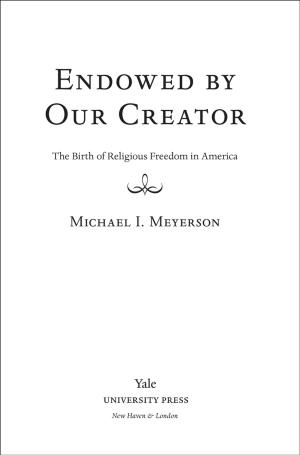| Author: | E.A. Smith | ISBN: | 9780300184235 |
| Publisher: | Yale University Press | Publication: | June 10, 1999 |
| Imprint: | Language: | English |
| Author: | E.A. Smith |
| ISBN: | 9780300184235 |
| Publisher: | Yale University Press |
| Publication: | June 10, 1999 |
| Imprint: | |
| Language: | English |
This engrossing biography of George IV, king of England from 1820 to 1830, gives a full and objective reassessment of the monarch’s character, reputation, and achievement. Previous writers have tended to accept the unfavorable verdicts of the king’s contemporaries that he was a dissolute, pleasure-loving dilettante and a feeble and ineffective ruler who was responsible for the decline of the power and reputation of the monarchy in the early nineteenth century. Now E.A. Smith offers a new view of George IV, one that does not minimize the king’s faults but focuses on the positive qualities of his achievement in politics and in the patronage of the arts.
Smith explores the roots of the king’s character and personality, stressing the importance of his relationship with his parents and twelve surviving siblings. He examines the king’s important contributions to the cultural enhancement of his capital and his encouragement of the major artistic, literary, and scholarly figures of his time. He reassesses the king’s role as constitutional monarch, contending that it was he, rather than Victoria and Albert, who created the constitutional monarchy of nineteenth-century Britain and began the revival of its popularity. Smith’s biography not only illuminates the character of one of the most colorful of Britain’s rulers but also contributes to the history of the British monarchy and its role in the nation’s life.
Smith explores the roots of the king’s character and personality, stressing the importance of his relationship with his parents and twelve surviving siblings. He examines the king’s important contributions to the cultural enhancement of his capital and his encouragement of the major artistic, literary, and scholarly figures of his time. He reassesses the king’s role as constitutional monarch, contending that it was he, rather than Victoria and Albert, who created the constitutional monarchy of nineteenth-century Britain and began the revival of its popularity. Smith’s biography not only illuminates the character of one of the most colorful of Britain’s rulers but also contributes to the history of the British monarchy and its role in the nation’s life.
This engrossing biography of George IV, king of England from 1820 to 1830, gives a full and objective reassessment of the monarch’s character, reputation, and achievement. Previous writers have tended to accept the unfavorable verdicts of the king’s contemporaries that he was a dissolute, pleasure-loving dilettante and a feeble and ineffective ruler who was responsible for the decline of the power and reputation of the monarchy in the early nineteenth century. Now E.A. Smith offers a new view of George IV, one that does not minimize the king’s faults but focuses on the positive qualities of his achievement in politics and in the patronage of the arts.
Smith explores the roots of the king’s character and personality, stressing the importance of his relationship with his parents and twelve surviving siblings. He examines the king’s important contributions to the cultural enhancement of his capital and his encouragement of the major artistic, literary, and scholarly figures of his time. He reassesses the king’s role as constitutional monarch, contending that it was he, rather than Victoria and Albert, who created the constitutional monarchy of nineteenth-century Britain and began the revival of its popularity. Smith’s biography not only illuminates the character of one of the most colorful of Britain’s rulers but also contributes to the history of the British monarchy and its role in the nation’s life.
Smith explores the roots of the king’s character and personality, stressing the importance of his relationship with his parents and twelve surviving siblings. He examines the king’s important contributions to the cultural enhancement of his capital and his encouragement of the major artistic, literary, and scholarly figures of his time. He reassesses the king’s role as constitutional monarch, contending that it was he, rather than Victoria and Albert, who created the constitutional monarchy of nineteenth-century Britain and began the revival of its popularity. Smith’s biography not only illuminates the character of one of the most colorful of Britain’s rulers but also contributes to the history of the British monarchy and its role in the nation’s life.















